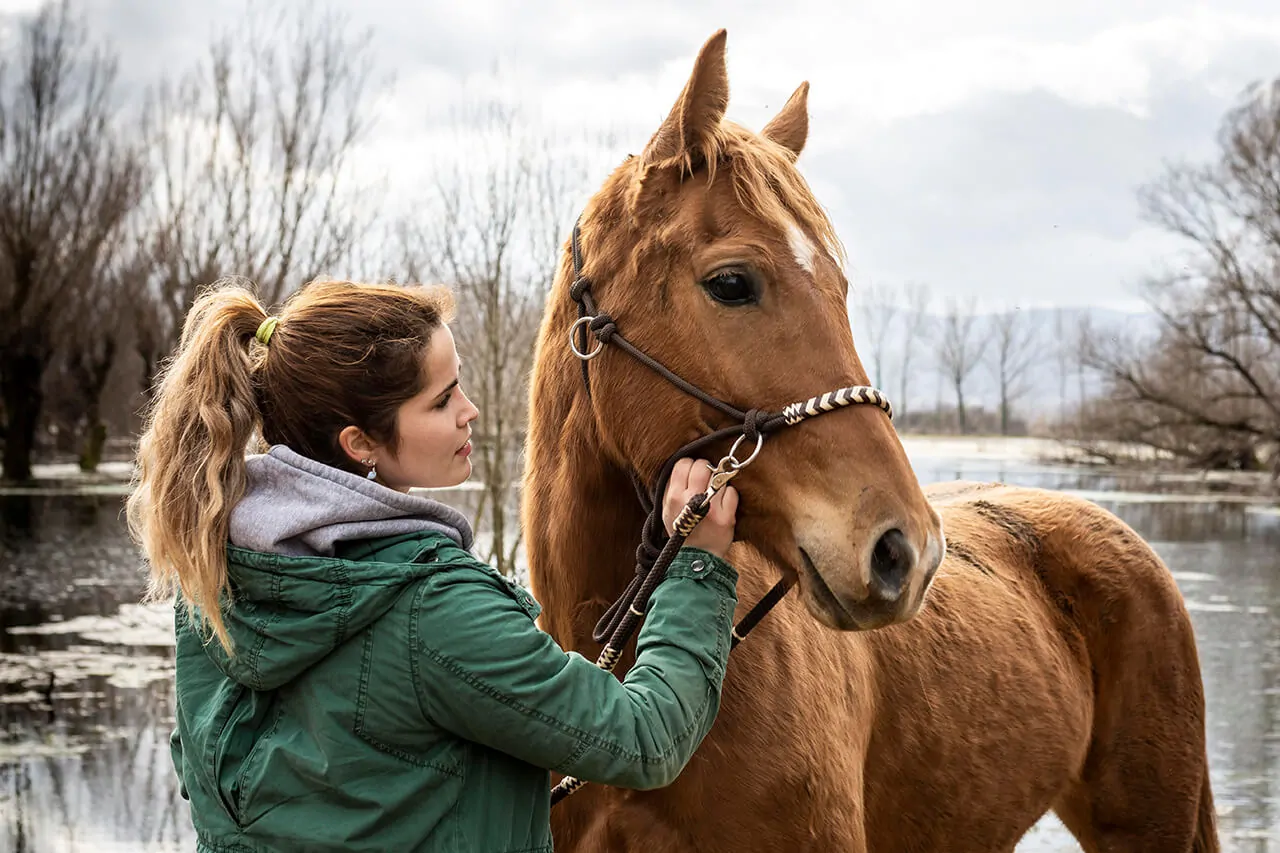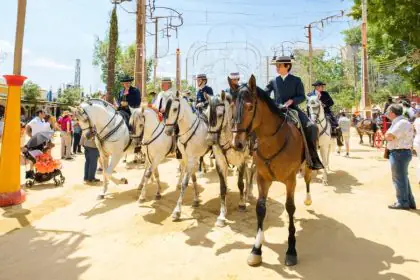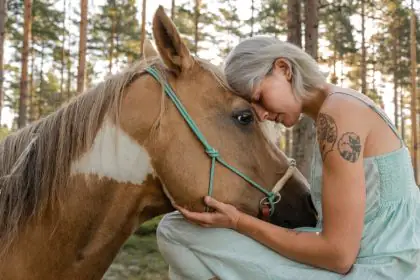In the equestrian world, the health and welfare of horses are of vital importance. However, sometimes medical conditions arise that affect these majestic animals, such as horse depression. In this article, we will explore in depth this disease, its causes, symptoms and treatment. We will also answer frequently asked questions to provide the most complete information possible on this topic.
What is Horse Depression?
Horse depression is a medical condition that affects horses and can have a significant impact on their welfare and performance. Although the term “depression” is commonly used to describe the condition, it is important to note that the disorder does not manifest in the same way as in humans. Horse depression is characterized by a general decrease in mood, energy, and interest in the environment.
Causes of Horse Depression
There are different factors that can contribute to the development of horse depression:
Continue reading
Environmental Factors: Horses are animals sensitive to their environment and sudden changes can cause stress and depression. Situations such as lack of stimulation, constant exposure to intense noise or prolonged absence of other horses can cause a state of sadness in the animal.
Health Problems: Horse depression can be a response to physical illness or injury. Physical discomfort can affect a horse’s mood and lead to depression.
Behavior Problems: Horses are social animals and need interaction and communication with other horses and humans. Lack of socialization and prolonged isolation can trigger depression in horses.
Changes in Routine: Horses are creatures of habit and feel more comfortable and confident when they have an established routine. Sudden changes in diet, training, schedule, or management can cause stress and trigger depression.
It’s important to note that every horse is unique and may have different triggers for their depression. It is essential to observe horses closely and look for signs of emotional distress in order to address the problem in time.
Symptoms of Horse Depression
The symptoms of horse depression can vary from animal to animal, but some common signs to look out for include:
Low Energy Level: A depressed horse may show a general lack of energy, appear tired, or show a decrease in performance.
Changes in Appetite: Depressed horses may lose interest in food or show a decrease in their appetite.
Changes in Behavior: Depression can lead to changes in a horse’s behavior. They may become more withdrawn, avoid interaction with other cabals, appear apathetic, or display unusual aggressive behavior.
Sleep Changes: A depressed horse may have difficulty sleeping or may sleep more than usual.
Loss of Interest: A depressed horse may lose interest in activities he once enjoyed, such as exercise or training.
It is important to note that these symptoms can be indicative of other medical conditions, so it is critical to consult a specialized veterinarian for a proper diagnosis.
Treatment of Horse Depression
Treatment of horse depression can vary depending on the underlying cause and severity of the condition. Some common treatment options include:
Changes in the Environment: Making adjustments to the horse’s environment can help alleviate depression. This may include ensuring the company of other horses, providing more stimulation and environmental enrichment, and ensuring proper and respectful handling.
Changes in Routine: Restoring a stable and predictable routine can help horses feel more confident and reduce their stress level.
Behavioral Therapy and/or Training: Behavioral therapy can be helpful in addressing horse depression. This may include implementing behavior modification techniques or participating in specific training programs.
Nutritional Supplementation: In some cases, nutritional supplementation may be recommended to address nutritional deficiencies that may be contributing to horse depression. It is important to work closely with an equine veterinarian to determine what type of supplementation is appropriate for each specific case.
Drug Therapy: In more severe cases of horse depression, the use of medications prescribed by a veterinarian may be considered. These medications can help stabilize the horse’s mood and promote its emotional well-being.
It is critical to remember that the treatment of horse depression must be comprehensive and address not only the physical, but also the emotional and environmental aspects. Working with an experienced veterinary team and seeking the right guidance will ensure the best approach to treatment.
Frequently Asked Questions About Horse Depression
How can I prevent horse depression?
Prevention of horse depression involves providing a suitable and stimulating environment, ensuring good socialization with other horses and providing a stable routine. It’s also important to pay attention to changes in the horse’s behavior and mood, and take quick action to address any emotional issues.
How long will it take to recover a depressed horse?
The length of the recovery process can vary depending on the horse and the severity of its depression. Some horses may show improvement within a few weeks, while others may require several months of treatment and care.
Can horse depression affect your performance in competitions?
Yes, horse depression can have a significant impact on a horse’s performance in competitions. Depression can affect your energy level, motivation, and concentration, resulting in underperformance. It is important to address depression in a timely and appropriate manner to minimize any negative impact on horse performance.
Is horse depression treatable?
Yes, horse depression is treatable. Through a combination of changes in the environment, behavioral therapy, training, nutritional supplementation and, in some cases, drug therapy, it is possible to address and overcome depression in a horse. It is important to work closely with a specialized veterinarian to determine the best treatment plan for each individual case.
Can horse depression be contagious to other horses?
No, horse depression is not considered contagious to other horses. However, if depression is caused by environmental factors, such as lack of socialization, the presence of other healthy and well-adjusted horses may be beneficial in helping the depressed horse recover and improve its mood.
Conclusion
Horse depression is a condition that can negatively affect the health and well-being of these majestic animals. It is critical to pay attention to the signs and symptoms of depression and take steps to address it in an appropriate and timely manner. Working closely with an experienced veterinary team and providing a nurturing and safe environment are essential aspects of helping horses overcome depression.
Remember that every horse is unique and may have different triggers and treatment needs, so it’s important to seek the right professional guidance. Horse depression can be overcome with proper care and attention, allowing our beloved equines to once again enjoy a healthy, active and happy life.
How useful was this post?
Click on a star to rate it!
Average rating 0 / 5. Vote count: 0
No votes so far! Be the first to rate this post.
We are sorry that this post was not useful for you!
Let us improve this post!
Tell us how we can improve this post?





